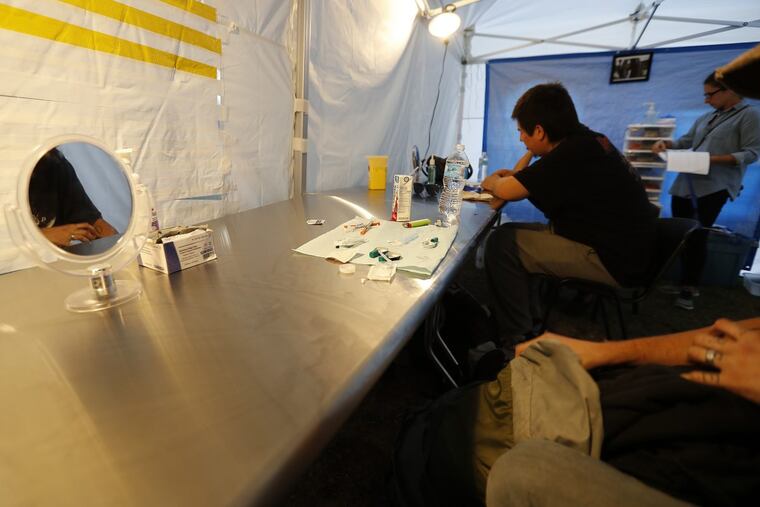Philly police commissioner now keeping an open mind to safe-injection sites | Mike Newall
A year ago, if you'd talked to Police Commissioner Richard Ross about safe-injection sites, he would have told you he was "completely incredulous." But it's essential, he told me Tuesday, to evaluate a situation and evolve.

A year ago, if you'd talked to Police Commissioner Richard Ross about safe-injection sites, he would have told you he was "completely incredulous."
"Adamantly opposed," even.
But it's essential, he told me Tuesday, to evaluate a situation and evolve. And so, in October, as the city hosted the International Association of Chiefs of Police Conference, Ross cornered his Vancouver counterparts, Chief Constable Adam Palmer, who polices the first city in North America to have opened a safe-injection site.
Palmer, who was just a few years off the beat when the Vancouver site opened in 2003, told Ross he'd been skeptical at first, too. And the sites where people can use drugs under the eye of medical staff and social workers, he said, aren't a cure-all.
But they didn't increase crime in the neighborhood. And they were saving lives.
"He talked about public safety issues and how they had not been impacted," Ross said.
The Canadian chief talked about how his mind-set had changed. And so has Ross'.
It's not that the commissioner is promoting safe-injection sites. He has questions about the department's role in such a site, namely the legal ins and outs of policing a place where illegal drug use is sanctioned.
But he said he's confident Philadelphia is doing everything it can to answer his questions.
That conversation with Palmer, Ross' colleagues' visit to Vancouver the following month, and, most important, the sheer weight of the death toll in the city have left him "open-minded," as he put it, to the possibility of a site in this city.
"People are dying at record paces," he said, noting that Philadelphia is expected to surpass 1,200 overdose deaths in 2017, up from 900 in 2016. "Something has to be done to address it."
That something is up to the city. Ross knows the stakes as well as anyone. After all, he'll be up there fielding questions from community members about threats to public safety and the quality of life.
Our conversation came on a day when Gov. Wolf declared an opioid emergency in Pennsylvania. As my colleague Angela Couloumbis reported Tuesday, the emergency declaration is designed to ease regulations and get more people into treatment, increase the use of the overdose-reversing spray Narcan, and streamline the state's response to overdose outreach. To its credit, the state has worked to address the crisis, and this is a good next step.
And it's been clear for months that the conversation over what could be our city's next move — a safe-injection site — has been intensifying. But these conversations are still largely going on behind closed doors. There has been good reason for that: This is a highly charged issue, and if the city is to allow the first safe-injection site in the country, it has to stick the landing. That means getting city officials, council members, advocates, and yes, Ross, on the same page. That means having answers to questions that will come.
City officials told me that they're primed to make a final decision about a site soon, maybe by month's end.
Support mounts. After the Vancouver trip came the positive report to the city task force. Our new district attorney is fully behind a site. But as momentum builds, so does the conversation — and the controversy — around it.
It's time for the city to lead that conversation. Every day is a lost opportunity to convince someone that this is the right idea for the city of Philadelphia.
Myths proliferate in the space between private conversation and public engagement. Fictions spread, such as that injection sites attract more drug users, create more crime.
It's time we start addressing those myths — and answering those questions. Together. As a city.